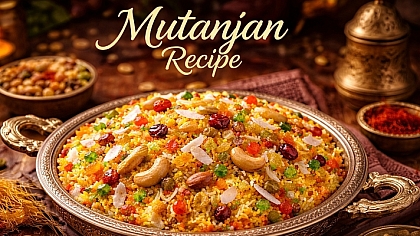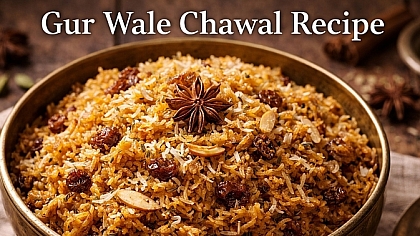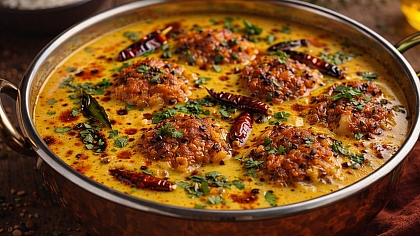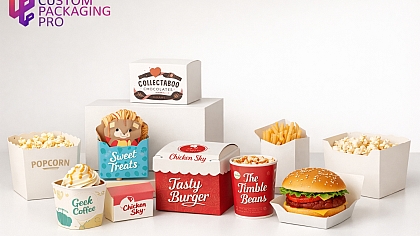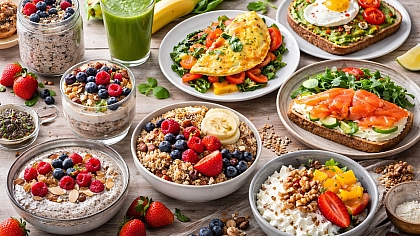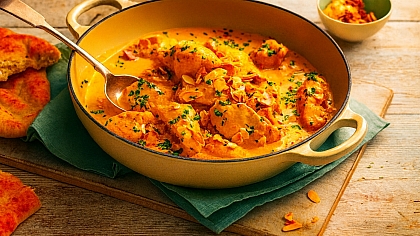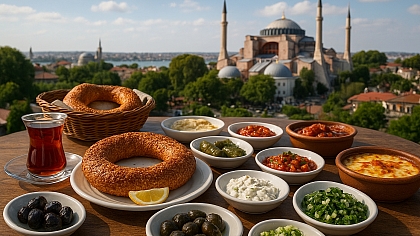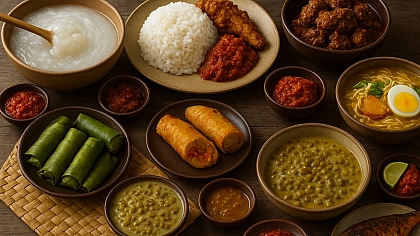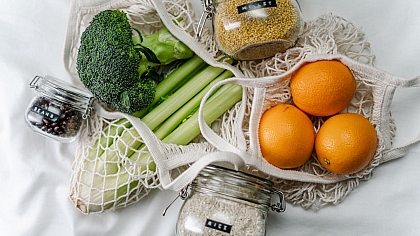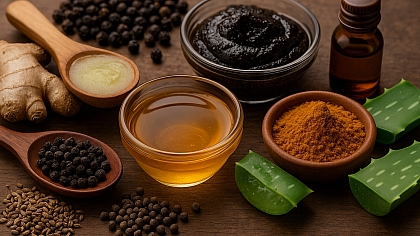
Unleashing the Flavour: The Power of Herbs and Spices
The power of herbs and spices is often underestimated, but they can add a lot of flavour to your dishes. Herbs and spices may be used fresh in the same way that you would use a herb or spice leaf in a recipe.
Fresh herbs, such as basil and parsley, should be stored in a glass bowl filled with water and covered with a plastic film.
You can keep freeze-dried herbs in ice cube trays for longer-term storage but do not add salt or oil when using them later on.
Ground spices have a longer shelf life than whole spices. They should be stored in tightly sealed jars, away from heat and light. Spices and herbs add warmth and flavour to food. Spices and herbs originated in Asia, but are now grown all over the world!
Why Use Herbs and Spices?
Herbs and spices are the most powerful tools in your kitchen. They can take ordinary dishes to extraordinary heights, and they're easy to use!
Herbs are the leaves of plants, while spices are generally aromatic seeds or bark. Herbs have been used for thousands of years in cooking around the world--and for good reason: they taste great! But beyond their deliciousness, herbs carry many health benefits as well.
The benefits of herbs and spices include:
- Anti-inflammatory properties (cayenne pepper)
- Cardiovascular protection (ginger)
- Cancer prevention (turmeric)
Herbs also add texture and flavour--which makes them ideal additions to any dish you're cooking up in your kitchen today!
The Power of Herbs and Spices
Herbs and spices are the most important ingredients in your kitchen. They add flavour to your food and boost its nutritional value. But herbs and spices aren't just for cooking--they're also powerful tools for boosting your health.
Herbs have been used for centuries as medicines, with some dating back over 4,000 years! The ancient Greeks used them to treat infections, while Native Americans brewed herbal teas to help relieve cold symptoms. Modern research confirms that many herbs contain compounds that fight diseases like cancer, heart disease and Alzheimer's--and some even work better than prescription drugs at treating certain conditions.
Spices can also be powerful allies in our quest for good health. Research shows they can help prevent oxidative stress-related damage caused by free radicals, which can lead to chronic inflammation that may contribute towards cancer risk or other serious illnesses later on down the road.
Here are a few easy ways to use spices and herbs in your kitchen
- Add fresh herbs and spices to your marinades. A few drops of lemon juice, garlic and a handful of rosemary will make even plain chicken breasts taste great.
- Use dried herbs in soups, stews and sauces at the end of cooking to add flavour without overpowering the other ingredients.
- If you're not sure how much to use, start with 1/2 teaspoon per person and then adjust according to taste!
Using herbs and spices can make your food more delicious
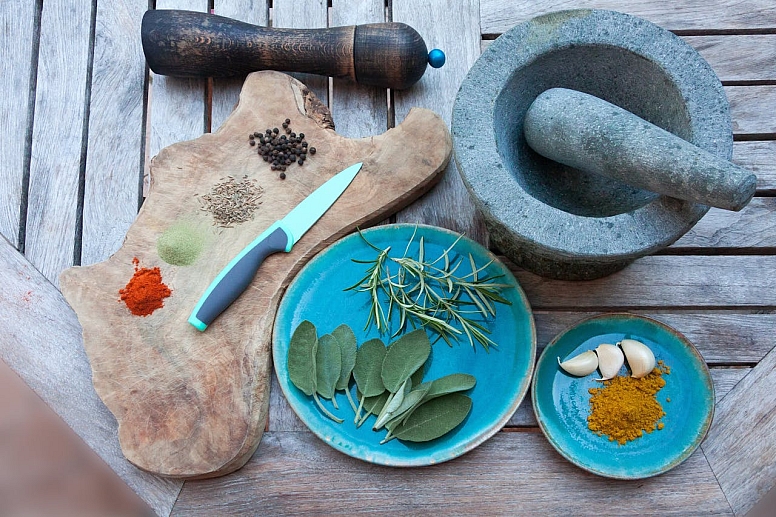
Herbs and spices are a great way to add flavour to your food. They can also make it more delicious, healthier and more nutritious. But know that they aren’t going to fulfil your all nutritious needs, so make sure to buy your bottle of multivitamins from a good supplement store!
Herbs and spices are essential to the cooking process
Herbs are the leaves of plants such as mint or basil, while spices come from seeds, roots and bark of various plants.
Herbs and spices are essential to the cooking process. They add flavour and aroma to food, as well as colour and texture. It's easy to see why they play such an important role in cooking--they can transform a dish into something spectacular!
Herbs and spices can help enhance your mood
Many herbs and spices can help you feel better.
Some of the most common mood-boosting herbs and spices are:
- Cinnamon, has been shown to reduce depression symptoms.
- Ginger, which has been shown to reduce anxiety.
- Basil, may improve your mood when consumed regularly for three weeks or more; it also helps with sleepiness and fatigue associated with depression or anxiety disorders.
Herbs and Spices are great for weight loss
If you're looking to lose weight, herbs and spices are a great way to go. They can help curb your appetite, boost your metabolism, and even help you feel fuller longer.
Herbs and spices are also high in fibre which means they make you feel full faster than other foods that don't have as much fibre in them. That's why some studies have shown that adding herbs or seasonings like cayenne pepper or cinnamon can increase feelings of fullness by up to 20%.
In the kitchen, herbs and spices make great substitutes for salt
In the kitchen, herbs and spices make great substitutes for salt. Adding a pinch of cinnamon or nutmeg to baked goods can add just enough flavour without being overpowering. Dried oregano is a great addition to tomato sauces, and when sprinkled on top of pizza it adds another layer of flavor to your favorite food.
Herbs are also good at adding depth to marinades; rosemary, thyme and sage work well together in this regard because they each have their unique properties that complement each other. If you're looking for something simpler than an elaborate marinade, then try sprinkling some chopped garlic directly onto meat before cooking instead--it will give you much more control over how much garlic gets into every bite!
Herbs and spices are potent sources of antioxidants
Herbs and spices are indeed potent sources of antioxidants, which can help prevent cell damage by neutralizing free radicals. Some studies have shown that when people consume herbs and spices regularly they have a lower risk of developing chronic diseases like cancer or heart disease.
Herbs and spices can help reduce inflammation in your body
Inflammation is a natural response of the body to injury or disease, but it often causes further damage if it's not managed properly. Inflammatory processes are also involved in age-related diseases like Alzheimer's and cancer.
Herbs and spices are rich sources of polyphenols, which have been shown to reduce inflammation by inhibiting the production of pro-inflammatory cytokines (signalling proteins made by immune cells that trigger an immune response).
Certain herbs and spices can help improve your digestion
Certain herbs and spices can help improve your digestion. For example, ginger is known to soothe an upset stomach and reduce nausea. It also helps ease symptoms of indigestion such as heartburn and gas by stimulating the production of bile in the liver, which aids in digestion. Basil has been shown to have antioxidant properties that help protect against colon cancer cells.
Cancer Prevention
The most common types of cancer are lung, breast, colon and prostate cancers. The risk of getting any type of cancer is higher in people who smoke or have been exposed to high levels of radiation or other carcinogens (cancer-causing agents). But it's not just smoking that increases your chances: if you eat a lot of red meat and processed meats like bacon and sausages; if you don't exercise regularly; if you drink alcohol --all these things can increase your odds too.
Herbs and spices have been shown to help prevent certain types of cancers because they contain antioxidant compounds that help protect against cell damage caused by free radicals (unstable molecules produced when we digest food).
Cardiovascular Health
The heart is a muscle that needs to be in shape to function properly, so it's no surprise that herbs and spices can help keep it healthy. Improve cardiovascular health by adding herbs like rosemary, thyme, sage and oregano to your diet. These antioxidant-rich ingredients are also thought to lower blood pressure while improving circulation.
Diabetic Control
Diabetes is a disease in which blood sugar levels are too high. The body can't use glucose for energy, so it's stored as fat and eventually leads to serious health problems. By adding herbs and spices to your meals, you can help control diabetes and improve the overall quality of your life.
Herbs and spices contain various phytochemicals (plant chemicals) that have been shown to have antioxidant properties that protect against heart disease, cancer and other diseases. Some herbs also act as natural diuretics, regulating water balance in the body by increasing urine output so you urinate more frequently--and this helps flush out excess toxins from your system.
Herbs and spices are the third type of food additive we need
Herbs are plants with leaves, stems and roots that are used for their flavour or aroma. Herbs can be fresh or dried. They're often used to season foods during cooking, but they're also used as garnishes on finished dishes.
Spices are dried seeds, fruits or roots of tropical plants that have been ground into powder form. They have intense flavours and aromas that add complexity to food without adding fat or sugar content--which makes them great for those trying to lose weight!
Herbs and spices can be used in many different ways. You can use them to flavour your food, add texture and colour, or even decorate your kitchen! The best part is that they're easy to find (and afford), so there's no reason not to try them out in your next recipe.

